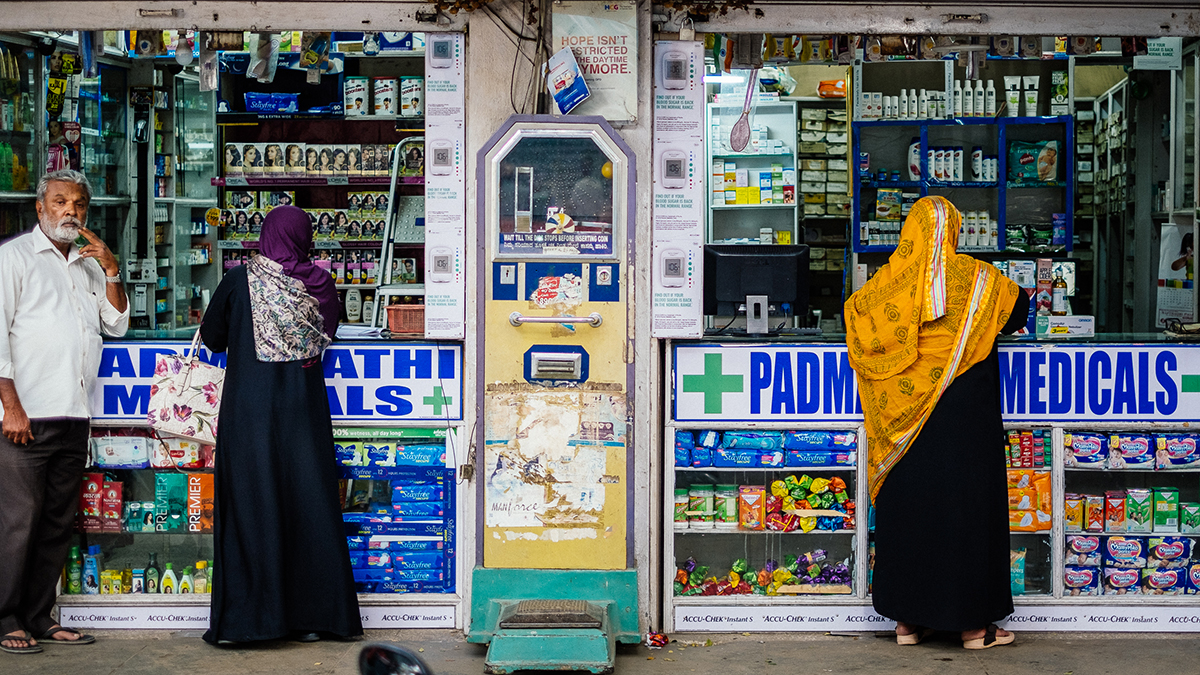Driving action on antimicrobial resistance (AMR) in 2024

In 2018, Wellcome commissioned IDEO, a global design company, to explore human behaviour when seeking and prescribing antibiotics. The team visited over 30 high street pharmacies in Kenya and India to get to grips with the reality of antibiotic availability.

This policy brief identifies opportunities to drive change in how governments respond collaboratively to antimicrobial resistance (AMR). It is designed to support discussions with and between governments in the lead-up to and following the 2024 UN General Assembly.
This policy brief identifies opportunities to drive change in how governments respond collaboratively to antimicrobial resistance (AMR). It is designed to support discussions with and between governments in the lead-up to and following the 2024 UN General Assembly.
AMR is one of the biggest challenges to keeping infectious diseases under control.
In 2019, drug-resistant infections caused over 1.27 million deaths. Without action, these numbers are expected to increase significantly over the next couple of decades, with low- and middle-income countries particularly affected.
Despite notable progress in some areas over the last 15 years, overall, the global response remains too weak and fragmented to match the escalating challenge. Action on AMR happens locally – in health systems and in communities – but we need urgent action from global leaders to help secure faster progress and greater global impact.
Several high-level political events, including the World Health Assembly, UN General Assembly and Fourth Ministerial Conference on AMR, make 2024 a unique year to renew political attention and establish strong governance mechanisms for addressing AMR.
This policy brief sets out Wellcome’s recommendations for a more effective global response.
We have made three recommendations to deliver a more ambitious and globally coherent approach to tackling AMR at the UN High-Level Meeting.
1. Countries should use the Political Declaration of the High-Level Meeting in September to set a bold, unifying goal for a reduction in the global burden of AMR.
- This should be the beginning of a pathway to develop a wider set of robust global targets for progress on AMR.
- The High-Level Meeting should not itself be setting detailed targets, but can and should set the political ambition, and mandate a process to develop more granular, context-specific targets.
2. The Political Declaration of the High-Level Meeting should initiate the creation of a panel for scientific evidence and action on AMR, with a clearly defined mandate and timescale for establishment.
- To be effective, the panel needs to be able to synthesise and advance the evidence base on AMR across the One Health spectrum.
- The model of an intergovernmental panel of the UN should be explored that draws a clear mandate from member states.
- The panel should draw flexibly on experts from a wide range of disciplines and sectors, reflecting its scope.
3. The UN High-Level Meeting must establish a mechanism that regularly convenes states to review progress, update targets, and maintain political momentum.
This mechanism should:
- review progress on AMR, including via new and more holistic targets
- guide countries and consider whether updated targets might be appropriate, based on an assessment of the evidence and with sensitivity to country contexts
- provide additional profile and public awareness of action on AMR by regularly convening senior political stakeholders.
To understand the opportunities for a course correction in the response to AMR during 2024 and beyond, and opinions about these, the Wellcome Trust commissioned Boston Consulting Group (BCG) to synthesise expert views and analyse evidence from existing policy initiatives.
In early 2024, BCG interviewed 54 individuals whose feedback was then anonymised. These individuals represented different perspectives at country, regional and global levels, including agencies, implementing partners, advocacy organisations, and the private sector. BCG also assessed 17 global and regional policy initiatives with monitoring and accountability structures in place from across and outside global health.
This analysis, combined with Wellcome’s own insights from our engagement as a significant funder in the AMR field, has helped shape our conclusions and proposals in this paper, and Wellcome has drawn together the final report on this basis.


For information, contact Jeremy Knox, Head of Policy, Infectious Disease at Wellcome.